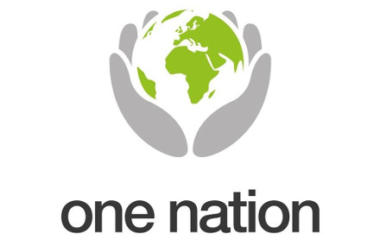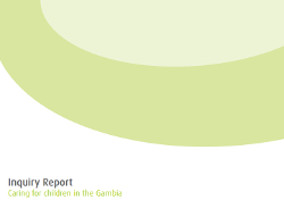A charity has stopped organising and participating in aid convoys following an investigation into its management by the Charity Commission.
The Commission published the findings from its statutory inquiry into One Nation last week. It found that charity that had used volunteers with motoring convictions, among other failings, but said the charity has now has made “some improvements”.
The inquiry was opened in 2016 found that the charity was using volunteers with declared convictions and motoring offences for its aid convoys to Syria. This was against advice published by the Commission in 2015.
The Commission was also concerned that the charity had links with Live Updates from Syria, which in turn was connected to an individual who who was subject to an arrest warrant over hostile incursions into foreign countries and someone who had posted anti-semitic sentiments on social media.
The regulator was also concerned about comments posted on social media by volunteers. The report said concerns had been raised about: “An individual (‘Individual C’) who volunteered for the charity; the Commission has seen evidence of him expressing views the Commission considers it is not appropriate for the charity to be associated with for example, offering support for an individual convicted in the USA of attempted murder Aafia Siddiqui, and sharing an article by the reported head of an organisation designated as a terrorist group by a number of countries and organisations including the United Nations Security Council. The trustees confirmed that the views expressed by Individual C do not reflect those of the charity or its trustees.”
A spokesperson from the charity said: “We do not condone extremism in any form, on any format in its entirety. Individuals who make public statements in their own personal capacity on their personal social media platforms does not reflect in any way the expressed views of One Nation.”
“We do however feel it is not practical for a small charity to be expected to police the opinions and social media posts of all those who support it and be held responsible for those comments,” they added.
The inquiry opened due to concerns that the charity was not following regulatory advice from the Commission, which was issued as the charity operate in Syria, which the Commission considers as a high-risk area.
Financial mismanagement
The Commission also found that the charity employed a former trustee to a senior management position without the Commission’s permission, without advertising the role on the open market, meaning that the employee’s £13,000 yearly salary was “unauthorised”.
Trustees had also failed to account for all the charity’s income, its restricted funds, and had problems in annual reports from 2014, 2015 and 2016, the regulator said.
The spokesperson for the charity said that it felt some information the Commission issued could be misconstrued. They said that the charity did not fail to account for its income but made mistakes in not recording the value of donated items, something they say they did not know they had to record in annual reports.
They also added that it disputed the claim that the £13,000 paid to the former trustee was unauthorised.
“We would like to categorically assure all our donors that no aid or funds have been mismanaged or misused,” they said.
The Commission found that the charity has improved its vetting process in appointing volunteers and no longer participates in aid convoys. It has also improved the charity’s accounts and broken links with its questionable partnerships.
Michelle Russell, director of investigations, monitoring and enforcement at the Charity Commission said: "At the time of opening our inquiry the governance and administration of this charity was inadequate. By failing to carry out appropriate checks or act responsibly, these trustees exposed their charity to serious undue risk, undermining the purposes for which this charity was established and falling short of what the public expect of a charity.
“These risks could have been easily avoided through better management and administration of the charity. Our intervention has shone a light on past failings and led to improvements in the charity’s governance. We expect the trustees to continue to strengthen the charity’s operations so that the charity can maximise its impact on people’s lives.”
'Decisive learning period'
Responding to the results of the inquiry, the spokesperson from One Nation said that the charity has reviewed all policies and procedure, employed an operations manager to help the charity move forward, and introduced stricter financial controls.
They said: “Since the inquiry started, we have overcome a decisive learning period and accept a few oversights were made in the processes and management in the process. The charity has been under strict scrutiny by the Commission since we registered, which by the admission of the Commission is primarily because of our work in Syria; which is regarded as a high-risk area to operate in.”
“We highly appreciate the support given by the Commission in encouraging One Nation to improve its management, systems and procedure protocols. We have humbly taken on board the sincere advice given and significantly improved in the highlighted areas by having robust policies and procedures in place. One Nation is in a stronger and healthier position as a result of theses recommendations by the Charity Commission.”
One Nation was founded in 2014. It has three trustees, seven employees and 10 volunteers. Its annual income is almost £4m.
|
Editor's note - 12 March 2019
This story has been updated to clarify the concerns that the Charity Commission was looking into.
Related articles












